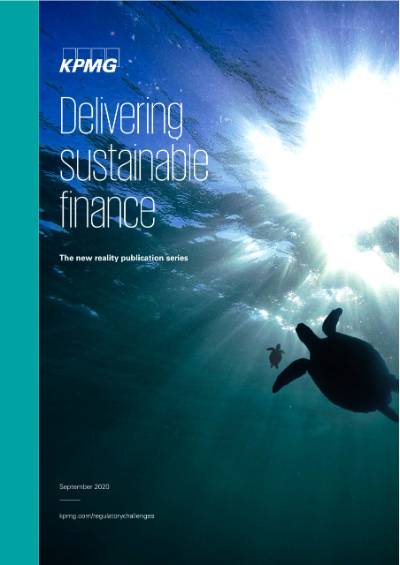Sustainable finance has been on the regulatory agenda due to governments' commitments to climate change, and is rising in prominence as the COVID-19 pandemic has highlighted that business sectors are deeply interconnected across borders, that societies of all types and wealth levels are vulnerable, and that the environment is under increasing strain. Labour inequality and human rights are to the fore. Around the globe, investor and customer demand remains a key driver of change, but the pursuit of sustainable finance is now driving regulatory priorities. While firms move through the recovery phase, they need also to look to the new reality, in which delivering sustainable finance will be an imperative.
Key topics covered in this paper include:
The search for consistency remains a key concern and priority. At present, some definitions sit in corporate reporting standards or recommendations, or in established industry practices. The key to achieving consistency, and to enabling the development of reliable market data, will be standardised definitions of E, S and G, globally.
Various global initiatives are underway to address concerns that not enough companies are disclosing information about their climate-related risks and opportunities. Recognising the challenges that companies are facing in reporting ESG risks, standard-setting bodies are seeking to enhance and align their approaches to corporate reporting, both financial and non-financial.
The EU's incoming ESG disclosure requirements for financial services firms are extensive and will have far-reaching implications. They cover policies and procedures, product information and remuneration. There are also new low carbon benchmarks and disclosure requirements for all benchmarks.
Regulators are calling on firms to include ESG factors in their risk frameworks and in stress testing exercises. Firms and regulators are aware of the significant challenges involved. Quantification of climate risk is complex, methodologies and tools to estimate scale and impact of climate-related risks are evolving. Nevertheless, firms are expected to act, and to act now.
Firms are required to consider ESG factors in their product governance and suitability assessments. And there is more to come — an EU Green Bond standard is under consultation and an EU Eco-label for retail investment products is in design.
Stay up to date with what matters to you
Gain access to personalized content based on your interests by signing up today
Connect with us
- Find office locations kpmg.findOfficeLocations
- kpmg.emailUs
- Social media @ KPMG kpmg.socialMedia






